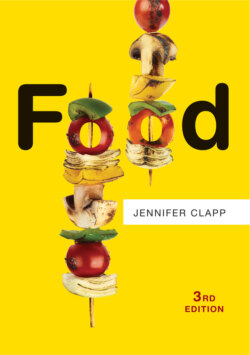Читать книгу Food - Jennifer Clapp - Страница 13
Uneven liberalization of agricultural trade
ОглавлениеMost governments have long protected agriculture for national security reasons, but recent decades have seen growing moves to liberalize trade and investment in this sector. In the 1980s, many developing countries were strongly encouraged to liberalize their agricultural markets under structural adjustment programs (SAPs) imposed by the International Monetary Fund (IMF) and the World Bank. Indeed, in many cases heavily indebted developing countries had little choice but to open up their agricultural trade policies under these programs, in particular to lower tariffs on imports. The widespread adoption of these policies across the developing world represented a new governance space where the rules for imports and exports in food and agriculture were set by international development agencies.
Liberalization of agricultural trade has been slower and more fitful for the rich industrialized countries. The cost for these countries of subsidizing their farm sectors had become untenable in the 1980s, leading to calls for global rules to lock in agricultural trade liberalization, including a reduction in farm subsidies. Agricultural trade had previously been exempt from international trade rules, but this changed with the 1994 Uruguay Round of trade talks which included the Agreement on Agriculture (AoA) under the World Trade Organization (WTO). As yet another new agricultural governance arena, the WTO’s AoA has had enormous influence on agricultural trade outcomes. The agreement sought to liberalize agricultural trade by encouraging a reduction in farm subsidies in rich countries – including domestic support and export promotion subsidies – in return for further opening of markets in developing countries. This agreement made some steps toward liberalization in rich countries, but it ultimately resulted in an uneven playing field that disadvantaged developing countries while maintaining significant sums of rich world subsidies.
The Doha Round of trade talks, launched in 2001, initially sought to correct the biases built into the Agreement on Agriculture. But the talks did not result in any substantive agreement, and were eventually abandoned due to deep differences among rich countries and between rich and poor countries over both subsidy levels and special treatment for developing countries. The food crisis of 2007–2008 led many countries to question their reliance on global food markets. Recent trade tensions between the United States and China have also affected global food trade patterns, leading to what many see as an abandonment of the post-war liberal trading order. In this context, a number of countries have increased their interest in promoting food self-sufficiency in the face of what they see as unfair agricultural trade rules and practices.
